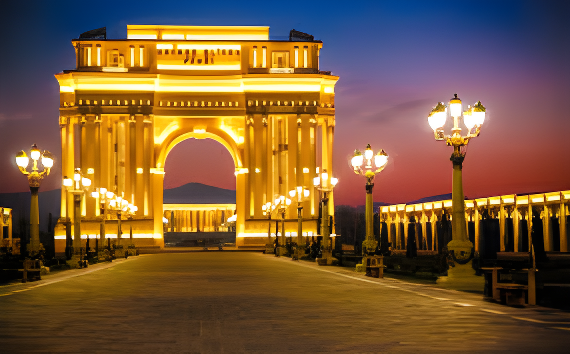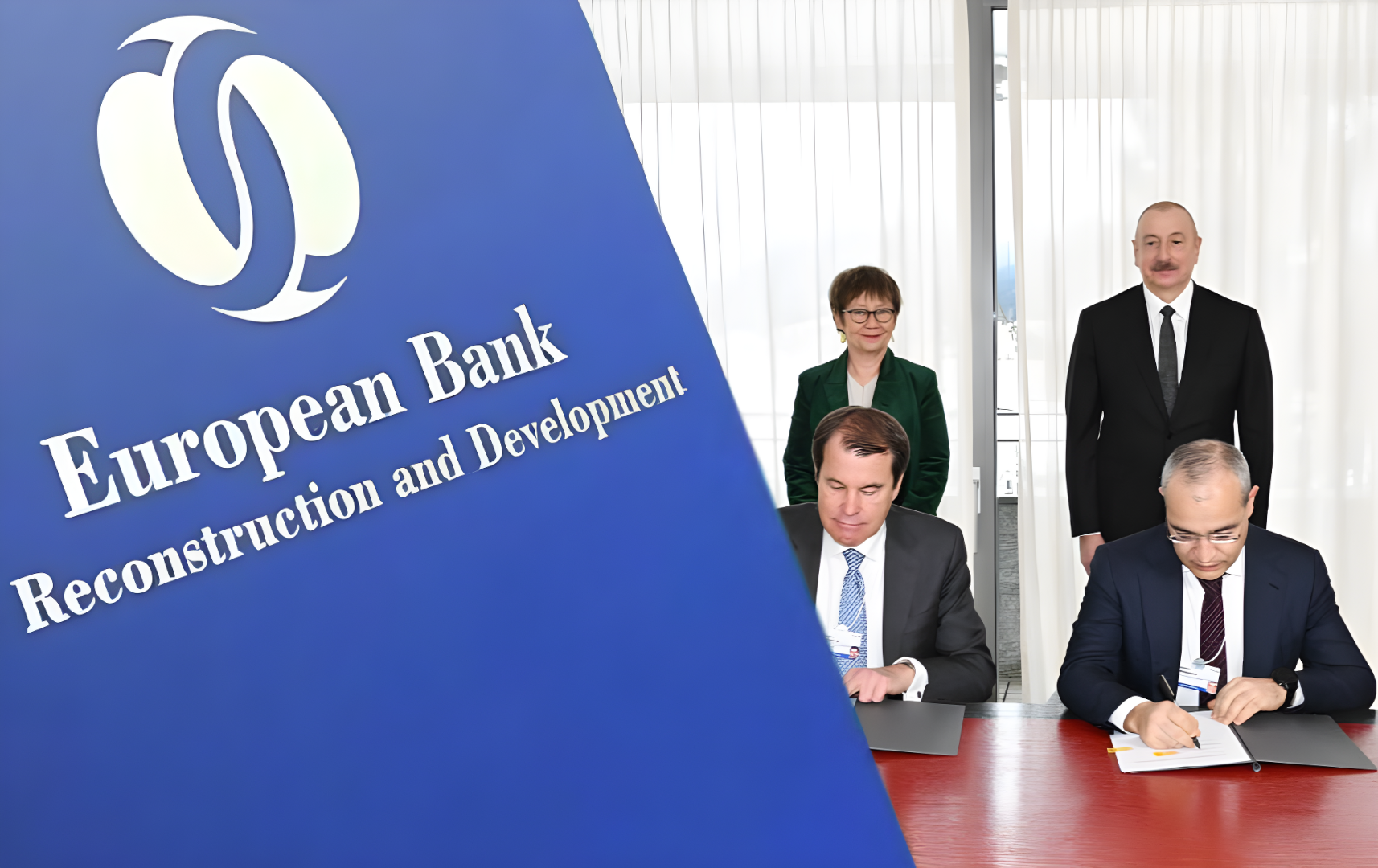WNAM MONITORING: At the 2025 World Economic Forum in Davos, Azerbaijani President Ilham Aliyev participated in several key meetings that underscored the country’s focus on enhancing its regional and global economic ties. Among the most notable outcomes was a significant agreement with the European Bank for Reconstruction and Development (EBRD), which will pave the way for the development of Ganja’s water management infrastructure. This landmark agreement, sealed between the EBRD and the Azerbaijani government, promises to contribute to the sustainable growth of the city, benefitting over 300,000 residents.
The agreement was formalized through the signing of a €35 million loan to finance the comprehensive upgrade of Ganja’s water systems. This agreement was signed by Mikayil Jabbarov, Azerbaijan’s Minister of Economy, and Jürgen Rigterink, EBRD’s First Vice President, in the presence of President Aliyev and EBRD President Odile Renaud-Basso. The partnership builds on Azerbaijan’s commitment to modernizing its infrastructure while fostering deeper ties with international partners.
Transforming Ganja’s Water Infrastructure
This multi-faceted water management project is set to revolutionize the city’s water and wastewater systems. The plan includes the construction of an 855-kilometer drinking water network and an 813-kilometer wastewater system across Ganja, along with the establishment of a treatment plant in the Samukh district. This plant will have the capacity to treat 110,000 cubic meters of wastewater daily, significantly improving the city’s sanitation standards and environmental health.
This overhaul aligns with Azerbaijan’s broader efforts to modernize its urban infrastructure. Not only will the project improve residents’ access to clean water, but it will also enhance the city’s resilience to climate change by reducing water wastage and improving stormwater management. With increasing urbanization and environmental challenges, this initiative is a crucial step toward ensuring that Ganja becomes a more sustainable, livable city for its growing population.

In addition to Ganja’s revitalization that goes beyond water infrastructure is urban development. The city, with its rich cultural and historical heritage, is undergoing a transformation that combines modernization with the preservation of its cultural identity. Under the leadership of President Aliyev, Ganja has seen the restoration of more than 180 historical and cultural monuments, including the famous Nizami Ganjavi Mausoleum and Ganja Castle. These efforts have turned Ganja into a prime destination for tourists and history enthusiasts, ensuring the preservation of the city’s legacy for future generations.
Moreover, the city is becoming a vibrant cultural hub, with new public spaces and modern facilities being integrated into its landscape. This development not only attracts visitors but also enriches the daily lives of Ganja’s residents, offering them a better quality of life and a stronger connection to their city’s history.
Ganja is also emerging as an important center for regional and international events. In October 2025, the city will host the Third CIS Games, a prestigious sporting event expected to attract thousands of athletes and spectators from across the Commonwealth of Independent States. To accommodate the influx of visitors, a new stadium is being built in accordance with UEFA’s 4th category standards, with a seating capacity of 15,464. This stadium, alongside the newly opened Ganja Olympic Complex, will serve as a state-of-the-art venue for the games and other international sporting events.
The Ganja Olympic Complex, which opened in early 2024, is the largest of its kind in Azerbaijan, offering world-class facilities for athletes and visitors. The complex includes multiple sports venues, accommodation for athletes, and a range of other amenities to ensure a seamless experience for those participating in the CIS Games. These investments are not only about boosting Ganja’s international profile but also about creating long-term infrastructure that will benefit the local community by providing employment opportunities and new recreational spaces.
With these ambitious projects taking shape, Ganja is poised to become a model of sustainable urban development in Azerbaijan. The EBRD’s €35 million investment in the water management system is just one part of a larger strategy to turn the city into a modern, resilient, and environmentally responsible urban center. The city’s commitment to balancing development with environmental stewardship is reflected in its inclusion in the EBRD’s Green Cities programme, which helps cities identify and address their most pressing environmental challenges.This transformation will not only improve the daily lives of Ganja’s residents but also contribute to Azerbaijan’s broader economic diversification efforts. By investing in sustainable infrastructure, the country is preparing for a future where urban centers like Ganja are equipped to meet the demands of a growing population while minimizing their environmental impact.


